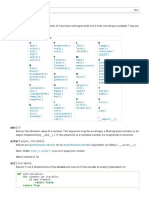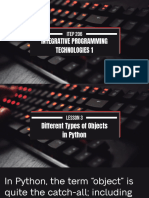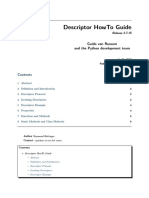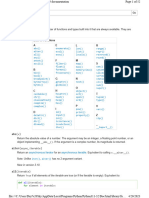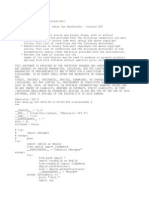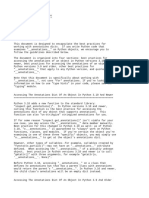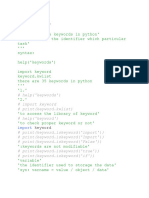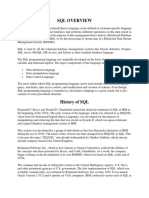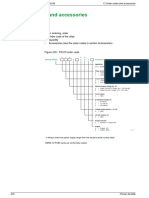0% found this document useful (0 votes)
7 views13 pagesObject
The document outlines various functions and constants related to Python's object protocol, introduced in version 3.13 of the Stable ABI. It details functions for retrieving, setting, and deleting object attributes, as well as handling constants like None, True, and False. Additionally, it includes functions for comparing objects, formatting, and obtaining string representations, all of which are essential for manipulating Python objects at a low level.
Uploaded by
Anupam TripathiCopyright
© © All Rights Reserved
We take content rights seriously. If you suspect this is your content, claim it here.
Available Formats
Download as TXT, PDF, TXT or read online on Scribd
0% found this document useful (0 votes)
7 views13 pagesObject
The document outlines various functions and constants related to Python's object protocol, introduced in version 3.13 of the Stable ABI. It details functions for retrieving, setting, and deleting object attributes, as well as handling constants like None, True, and False. Additionally, it includes functions for comparing objects, formatting, and obtaining string representations, all of which are essential for manipulating Python objects at a low level.
Uploaded by
Anupam TripathiCopyright
© © All Rights Reserved
We take content rights seriously. If you suspect this is your content, claim it here.
Available Formats
Download as TXT, PDF, TXT or read online on Scribd
/ 13







